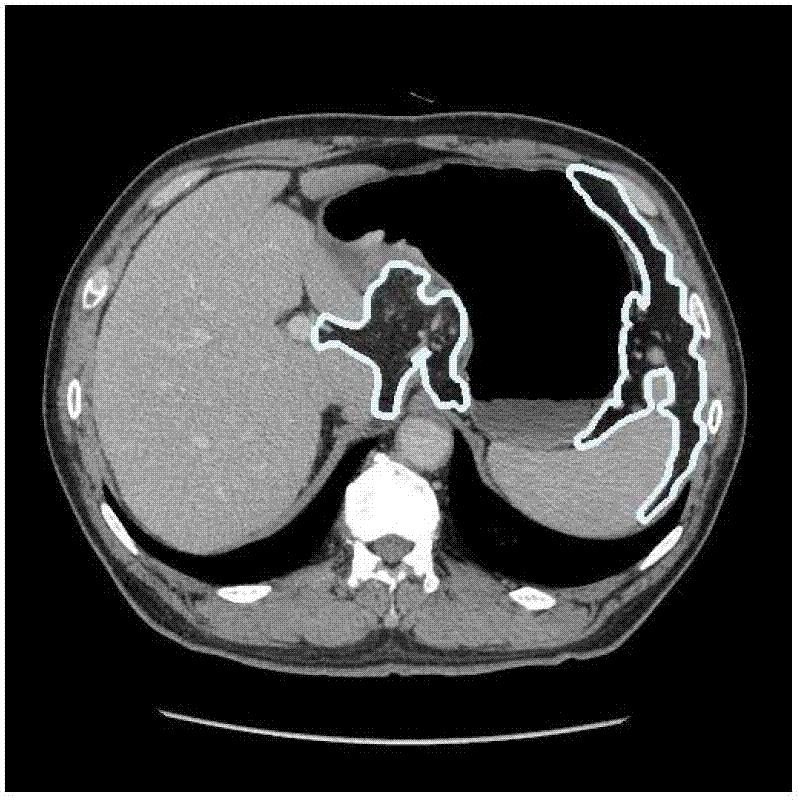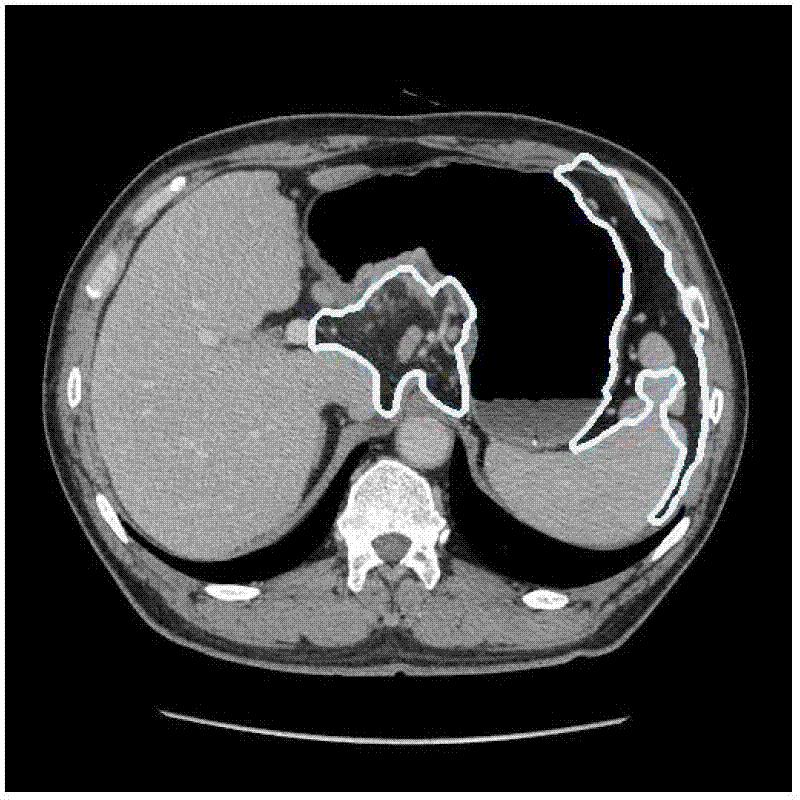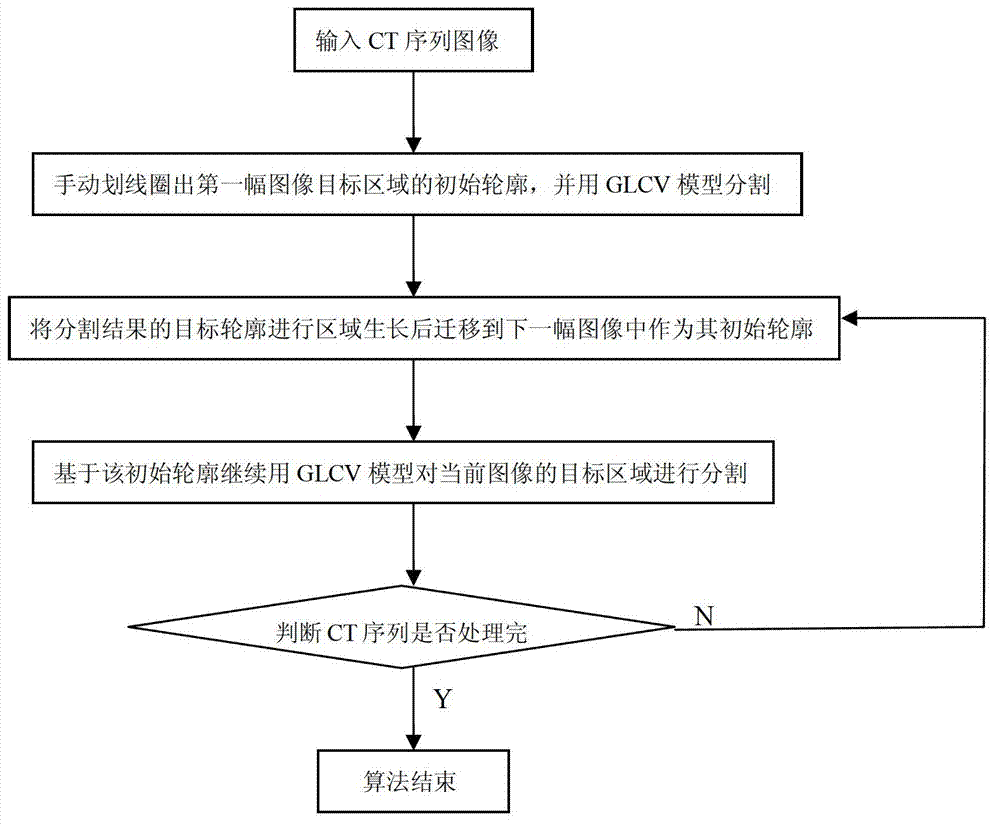Migratory active contour model based stomach CT (computerized tomography) sequence image segmentation method
An active contour model and sequence image technology, applied in the field of image processing, can solve the problems of slow segmentation, large changes, and edge leakage, and achieve the effect of overcoming edge leakage and improving accuracy.
- Summary
- Abstract
- Description
- Claims
- Application Information
AI Technical Summary
Problems solved by technology
Method used
Image
Examples
Embodiment Construction
[0024] refer to figure 1 , the present invention is based on the migration activity contour model gastric CT sequence segmentation method comprising the following steps:
[0025] Step 1: Input CT sequence image I i , i=1,...,30, these 30 images are from the stomach CT sequence of the same person, the size is 512×512, the first image I of our stomach CT sequence 1 ,Such as figure 2 shown.
[0026] Step 2:, manually in the I 1 The area to be segmented is drawn around the target area of , and a binary image D is obtained, such as image 3 As shown, use the edge of D to represent I 1 The initial contour curve C of the target area 0 .
[0027] Step 3: Using the active contour model GLCV combining regions and edges, the first image I in the CT sequence 1 to split.
[0028] 3a) Let the level set function in the GLCV model be u, and define the initial value of u as a signed distance function sign(u), since sign(u) satisfies the equation In order to calculate the gradie...
PUM
 Login to View More
Login to View More Abstract
Description
Claims
Application Information
 Login to View More
Login to View More - R&D
- Intellectual Property
- Life Sciences
- Materials
- Tech Scout
- Unparalleled Data Quality
- Higher Quality Content
- 60% Fewer Hallucinations
Browse by: Latest US Patents, China's latest patents, Technical Efficacy Thesaurus, Application Domain, Technology Topic, Popular Technical Reports.
© 2025 PatSnap. All rights reserved.Legal|Privacy policy|Modern Slavery Act Transparency Statement|Sitemap|About US| Contact US: help@patsnap.com



